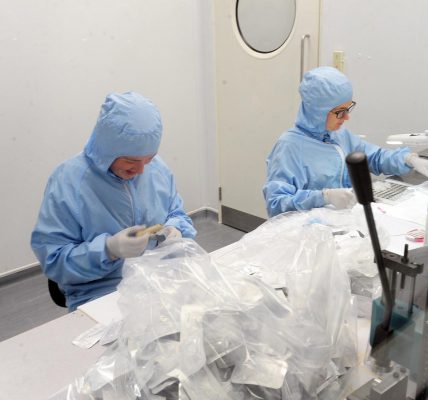A huge swathe of society is being plunged into debt and poverty, says ExcludedUK
The Treasury has been warned that a huge swathe of British society is being plunged into debt and poverty due to gaps in the support package for businesses which have been affected by the pandemic.
Leaders of ExcludedUK, which campaigns on behalf of the estimated three million people who have failed to gain meaningful Government support during the pandemic, have written to Jesse Norman, the Financial Secretary to the Treasury, claiming the UK’s economic recovery will be hampered without further Government action.
Support measures including the Job Retention Scheme and the Self-Employment Income Support Scheme, along with benefits such as Universal Credit, have been introduced to help workers whose livelihoods have been impacted by restrictions.
But the support does not cover some people, including the newly employed, the newly self-employed, freelancers, directors of limited companies paid in dividends, and the self-employed with annual profits of more than £50,000.
The letter from ExcludedUK says: “We have heard time and again that the schemes were intended to reach those who needed support most. What has resulted is a huge swathe of society, people who were largely self-sufficient yet not necessarily well-off, plunged into debt and poverty and who will remain a burden on the State and who will face a personal debt crisis for years to come.
It adds: “We all want to see the economy reopened, but the damage that has been caused by over a year of little to no support for so many is so far-reaching with severe consequences.
“We feel that the Treasury must take note and acknowledge these devastating effects on individuals, households, businesses and communities – spiralling debt, careers destroyed, an ever-growing mental health crisis, inequalities for the young, older workers, new parents, exacerbation of precarious working conditions, and the uncertainty that still hangs over so many, particularly those working in the hardest hit sectors.”
The ExcludedUK letter claims that a previous letter to the group from Mr Norman “merely reiterated many of the same assertions we have heard from Government throughout this crisis”.
The letter states: “We therefore feel it is vital to refocus your attention on those for whom the hardship and impacts felt are only becoming more acute month by month as this matter is simply not going to go away.”
“Turning to SEISS (Self-Employment Income Support Scheme), we categorically dispute the assertion that 600,000 more self-employed individuals will now be able to access the scheme, unless you are able to elaborate on the rationale behind this figure that can be evidenced by robust data.”
It adds: “We of course welcomed the inclusion of 2019/2020 tax returns in the calculation of SEISS going forward, which along with many others we had called for throughout; it would have been absurd had they not been included with one year having passed since the start of the schemes.”
“We can estimate that up to 300,000 may now been included in SEISS, although it is unlikely to be this many. That said, as has been pointed out from various quarters and in the Treasury Committee report of 15 June 2020, the newly self- employed will typically and understandably likely have high overheads in the early stages of setting up in business.
“Thus, with calculations based on trading profits, this further adds to the discrimination against the newly self- employed in accessing SEISS and, therefore, even if up to 300,000 may now be included, many of those will not be receiving any kind of meaningful support.
” You mention the Restart Grant of up to £18,000 to over 680,000 business premises and refer to small business owners being able to benefit from this support. We would refute this.”
The letter continues: ” As for Universal Credit, we assess that around 60% of those in this situation have not been able to access this support – because they have a partner who is working, because they have savings typically set aside for tax bills, or in other cases people saving up for a house, a car, a wedding or children’s education, for example. Universal Credit is not the answer, nor can it be deemed meaningful support.”
In his original letter to ExcludedUK, Mr Norman said: “As you will know, the Coronavirus Job Retention Scheme (CJRS) has helped to pay the wages of people in 11.2 million jobs across the country, with more than £53 billion paid out in grants across the UK, protecting jobs that might otherwise have been lost.
“The Self-Employment Income Support Scheme (SEISS) has paid out almost £20 billion in grants to 2.7 million self-employed individuals whose businesses have been adversely affected by Covid-19.
“The Government has provided an unprecedented package of measures throughout this pandemic to protect people’s jobs and livelihoods and to support businesses and public services across the UK, spending over £407 billion over this year and the next.
“To support businesses and employees through the next stage of the pandemic, the Chancellor announced at the last Budget the extension of the CJRS and SEISS until September.
“As part of this announcement, the Government has extended the Real Time Information (RTI) cut-off date for CJRS from 30 October 2020 to 2 March 2021, so that those employed on 2 March 2021 are eligible for claims starting on 1 May 2021. Based on early estimates, I am pleased to say this means around 2.4 million more employees are potentially eligible for CJRS.”.
A Treasury spokesperson said:“Our package of support continues to be one of the largest and most comprehensive in the world – protecting millions of jobs and the incomes of millions more.
“It’s been widely recognised that without our action, the impact of this crises would have been worse as the OBR has acknowledged.
“All our schemes are designed to target support at those who need it most, while we’ve also invested billions in strengthening our welfare safety net – ensuring it’s more generous and accessible for those who need it”.
A number of measures to support businesses have been announced by the Government:
For example, the Self-Employment Income Support Scheme (SEISS) will continue until September, with a fourth and fifth grant.
The Treasury said: “This provides certainty to business as the economy reopens and means the SEISS continues to be one of the most generous self-employment income COVID support schemes in the world. Individuals will be able to qualify for the new grants based on their 2019-20 tax returns.
“This means that over 600,000 self-employed individuals may be newly eligible for the SEISS, including many new to self-employment in 2019-20.
“At Budget we announced restart grants to help businesses get going again worth up to £18,000.
“Businesses which are not eligible for a Restart Grant may be able to benefit from the £425m Additional Restrictions Grant (ARG), which is allocated at the discretion of local authorities and can be used to support businesses which are not eligible for Restart Grants, but which are nonetheless experiencing a severe impact on their business.
“We invested billions in strengthening our welfare safety net, ensuring it’s more generous and accessible for those who need it.
“The temporary welfare measures include a £20 per week increase to the Universal Credit standard allowance and Working Tax Credit basic element.
“We increased the Local Housing Allowance rates for Universal Credit and Housing Benefit claimants and relaxed the Universal Credit minimum income floor.”
Support The Fond News and become a subscriber today. Your subscription will help us to continue to bring quality news to the people of US. In return, you’ll see fewer ads on site, get free access to our app and receive exclusive members-only offers. Click here to subscribe.










